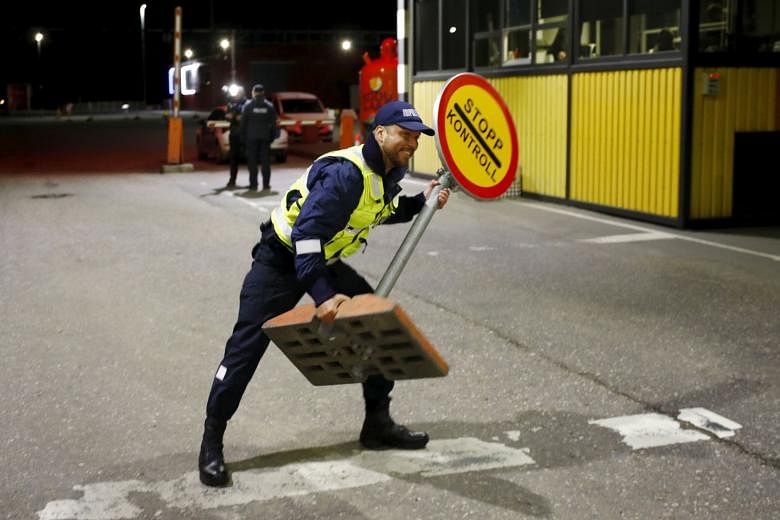IKLA/AINAZI BORDER CROSSING POINT, ESTONIA/LATVIA • Lithuania, Latvia and Estonia opened their common borders at the stroke of midnight, creating the first "travel bubble" within the EU to try and jumpstart economies broken down by the coronavirus pandemic.
A dozen Estonian border guards removed all signs directing vehicles to stop at the border and huddled together at the roadside for cake and coffee. "We have the little celebration because the border is open again," officer Martin Maestule said just after midnight yesterday, as the first cars sped through on the region's reopened main road.
Citizens and residents of the three generally sparsely populated Baltic nations are now free to travel within the region, though anyone entering from outside will need to self-isolate for 14 days.
"The Baltic Travel Bubble is an opportunity for businesses to reopen, and a glimmer of hope for the people that life is getting back to normal," Lithuanian Prime Minister Saulius Skvernelis said.
The neighbours' move comes as the European Union executive tries to coax its 27 member states to reopen internal borders and restart wider travel, albeit with safety measures such as requiring people to wear face masks on planes.
New coronavirus infections in the three Baltic republics have slowed to a trickle, with none of the countries reporting more than a dozen new cases on Thursday. The authorities have loosened lockdowns since late April.
The region as a whole has recorded fewer than 150 deaths from the disease - far below individual larger euro zone countries such as Italy, Spain, France or Germany.
"The Baltic states are close partners, have a similar epidemiological situation and their economies are well integrated, so the free movement of people as well as goods is very important for the region," said Mr Arnoldas Pranckevicius, the European Commission (EC) representative in Lithuania.
"Opening the borders is up to the member states, and the EC expects them to talk to each other, to coordinate their actions and to not discriminate against nationals of other EU members."
Some 120 vehicles crossed the border between Latvia and Lithuania in first five hours yesterday.
"We are driving to pick up our puppy - we will meet the new member of our family for a first time," Latvian Ervins Butkevics said as he crossed into Lithuania. "It's a date!"
Lithuania, Latvia and Estonia - the three poorest members of the euro zone - expect their economies to shrink by 7 per cent to 8 per cent this year, in line with the rest of the currency union.
Lithuania has warned of a "double-digit" drop if economies are not reopened by the summer.
The Baltic states were quick to close their borders and impose lockdowns as the virus started spreading. "There is no reason to fear that opening the border will cause the spread of the virus," Estonian Interior Minister Mart Helme said.
Travel restrictions were eased between Finland and Estonia, as well as between Poland and Lithuania, this week but only for those on the move for business or education.
REUTERS











